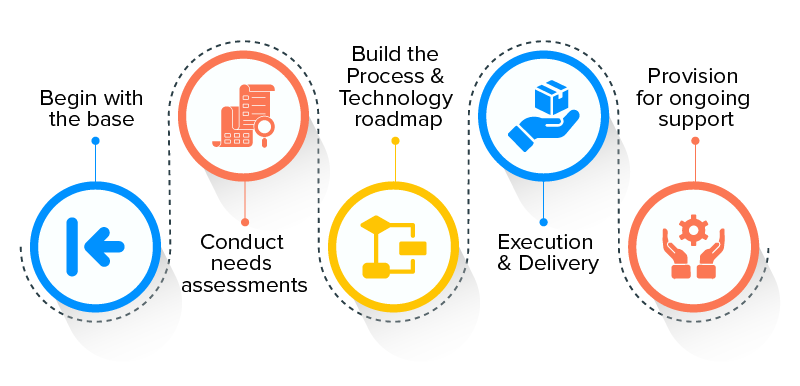Market Overview:
The Digital Transformation In Healthcare Market represents a significant shift in how healthcare services are delivered, managed, and experienced by patients and providers alike. This transformation is driven by the integration of advanced technologies such as artificial intelligence (AI), big data analytics, telemedicine, and electronic health records (EHR). The global healthcare digital transformation market is projected to grow substantially over the next few years, fueled by increasing demand for improved patient care, operational efficiency, and cost reduction. The market is expected to reach several billion dollars by 2032, reflecting a compound annual growth rate (CAGR) that underscores the urgency for healthcare organizations to adopt digital solutions.
Market Key Players:
Several key players dominate the digital transformation landscape in healthcare. Prominent companies include IBM Corporation, Cerner Corporation, Philips Healthcare, Siemens Healthineers, and McKesson Corporation. These organizations are at the forefront of developing innovative solutions that enhance patient engagement and streamline operations. Additionally, tech giants like Google and Microsoft are increasingly entering this space with cloud-based solutions and AI-driven analytics tools tailored for healthcare applications. Their investments in research and development aim to create more efficient systems that can handle vast amounts of health data while ensuring compliance with regulations such as HIPAA.
Download Free Exclusive Sample PDF:
https://www.marketresearchfuture.com/sample_request/8187
Market Segmentation:
The digital transformation in healthcare market can be segmented based on technology type, application area, end-user, and region. By technology type, it includes cloud computing, AI & machine learning, IoT devices, blockchain technology, and cybersecurity solutions. In terms of application areas, segments encompass telehealth services, remote patient monitoring systems, EHRs & EMRs (Electronic Medical Records), clinical decision support systems (CDSS), and patient engagement solutions. End-users are categorized into hospitals & clinics, pharmaceutical companies, research organizations, and insurance providers. Geographically, the market is analyzed across North America, Europe, Asia-Pacific (APAC), Latin America (LATAM), and the Middle East & Africa (MEA).
Market Drivers:
Several factors drive the digital transformation in healthcare. Firstly, there is an increasing emphasis on improving patient outcomes through personalized medicine facilitated by data analytics. Secondly, rising operational costs compel healthcare providers to seek more efficient processes; digital tools can automate routine tasks and reduce administrative burdens significantly. Thirdly, regulatory pressures for better data management practices push organizations toward adopting electronic systems that ensure compliance while enhancing data accessibility for both patients and providers. Lastly, the COVID-19 pandemic has accelerated the adoption of telehealth services as patients seek safe alternatives for receiving care without visiting facilities physically.
Market Opportunities:
The opportunities within this market are vast as technological advancements continue to evolve rapidly. One notable opportunity lies in expanding telemedicine services beyond urban areas into rural regions where access to healthcare is limited. Furthermore, integrating AI into diagnostic processes presents a chance to improve accuracy while reducing time spent on analysis. The rise of wearable health technology also opens avenues for continuous monitoring of chronic conditions outside traditional clinical settings. Additionally, partnerships between tech companies and healthcare institutions can lead to innovative solutions that address specific challenges faced by different segments within the industry.
Regional Analysis:
Regionally speaking, North America holds a significant share of the digital transformation in healthcare market due to its advanced infrastructure and high adoption rates of new technologies among providers. The United States leads this trend with substantial investments in health IT initiatives aimed at improving care delivery models. Europe follows closely behind with robust regulatory frameworks promoting interoperability among health systems while emphasizing patient privacy rights under GDPR regulations. In contrast, Asia-Pacific is emerging as a rapidly growing region driven by increasing internet penetration rates and government initiatives aimed at modernizing healthcare systems through digital means.
Browse In-depth Market Research Report:
https://www.marketresearchfuture.com/reports/digital-transformation-healthcare-market-8187
Industry Updates:
Recent updates indicate ongoing trends such as increased investment in cybersecurity measures within healthcare organizations due to rising concerns about data breaches affecting sensitive patient information. Moreover, collaborations between pharmaceutical companies and tech firms have become more prevalent as they work together on drug discovery processes leveraging AI capabilities for faster results than traditional methods allow. Additionally, many hospitals are now implementing integrated platforms that combine various aspects of care delivery from scheduling appointments to managing billing—into cohesive systems designed to enhance overall efficiency.


